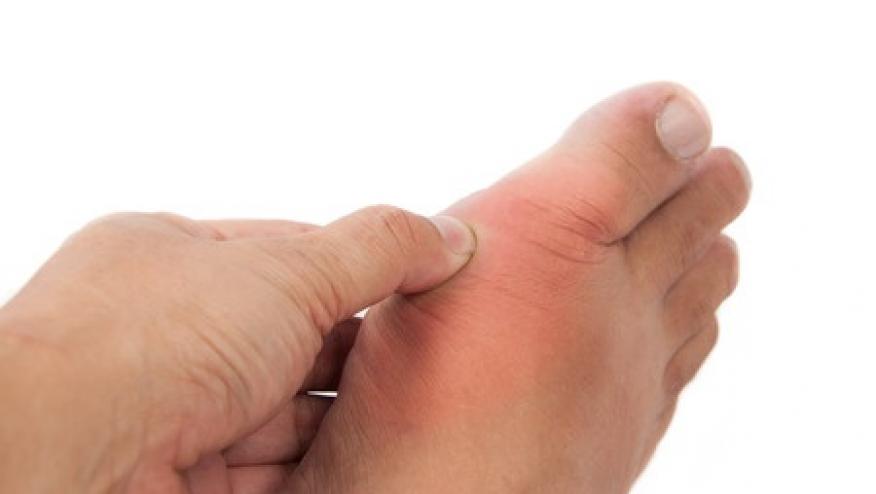Decreasing immunogenicity, improving efficacy of pegloticase in gout Save

Pegloticase, a mammalian PEGylated recombinant uricase is approved for chronic refractory gout treatment. It decreases the serum uric acid and the signs and symptoms of gout. High titer anti-drug antibodies have been reported with the use of pegloticase in nearly half of the patients. Because of these antibodies, pegloticase may lose efficacy and patients may have more infusion reactions. Immunomodulation has been reported to improve the pharmacokinetics of many other biologics by attenuating the formation of antidrug antibodies. Prior literature suggests that the response rates for pegloticase monotherapy is 42%. At #ACR20 three different medications are reviewed in different studies to decrease the immunogenicity of pegloticase – Methotrexate, Azathioprine and Mycophenolate Mofetil.
- Methotrexate - Abstract # 0677 discussed an open label study (Methotrexate to Increase Response Rates in Patients with Uncontrolled Gout Receiving Pegloticase - MIRROR trial) which enrolled 14 patients from 6 centers. Oral methotrexate (15 mg/week) and was started 4 weeks prior to the first pegloticase infusion and was continued during pegloticase therapy (8 mg every 2 weeks). Using a modified Intention to treat protocol, 78.6% patients responded to dual therapy with pegloticase and methotrexate.
- Mycophenolate mofetil - Abstract # 0952 discussed Phase 2 double blind randomized control trial (Reducing Immunogenicity of Pegloticase – RECIPE trial) where 22 patients were in the mycophenolate mofetil with pegloticase arm and 10 patients were in the placebo with pegloticase arm. 86% of the patients in the mycophenolate arm responded as opposed to the placebo group where the response rate was 40%.
- Azathioprine - Abstract #0685 discussed an open label multicenter study of 12 patients who got daily oral Azathioprine which was titrated up to 2.5mg/kg prior to starting pegloticase. 6 patients (50%) has persistent urate lowering effects, 2 patients (17%) lost the urate lowering effect while the others dropped out of the study due to various reasons.
The trials mentioned above measured response when of serum uric acid <6 mg/dl was achieved at a predefined timepoint. All patients received corticosteroids along with the pegloticase infusions. It is recommended to stop oral xanthine oxidase inhibitors like allopurinol which interfere with uric acid monitoring during treatment with pegloticase in order to reduce the risk of side effects such as allergic and infusion reactions. However, it is crucial to remember that if at all azathioprine and allopurinol are combined during transitioning, can lead to potentially fatal blood dyscrasias.
Even though these trials and response rates cannot be compared head to head given different trial designs, these studies support the indication that immunomodulation improves the response rates in gout patients on pegloticase and favor its use in clinical practice.










If you are a health practitioner, you may Login/Register to comment.
Due to the nature of these comment forums, only health practitioners are allowed to comment at this time.